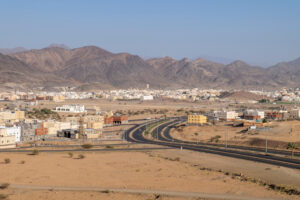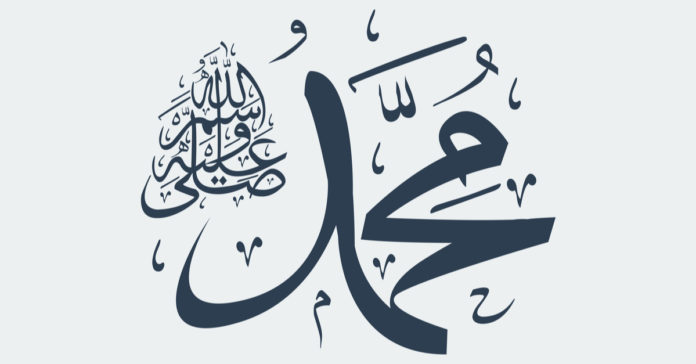Today, the 17th of Ramadan, marks the anniversary of one of the greatest victories in the lifetime of Prophet Muhammad (pbuh) – the Battle of Badr. Maria Akbar outlines key lessons Muslims can learn from this historic victory and which can be applied to the plight of the Palestinians today.
The initial thirteen years of Prophethood were in Makkah and they were tough years. The Muslims were persecuted severely, killed, tortured, and expelled due to their belief in Allah SWT and Muhammad PBUH as the Messenger of Allah.
The Quraish tried their utmost to assassinate the Prophet (pbuh) and stop the spread of Islam but did not succeed.
It was during one such attempt that the Prophet was granted permission by Allah to migrate with the Muslims to Madinah. For the first time, the Muslims would be able to establish themselves socially and politically.
Not long after they had settled in Madinah, the Muslims began engaging in some skirmishes with the Quraish. In response to intense persecution and aggression from the Quraish, the Prophet (pbuh) sanctioned Muslim raids on merchant caravans belonging to the pagan tribe, including one led by Abu Sufyan, a chief instigator of persecution against the Muslims.
It was one such raid which would spark events which led to the historic Battle of Badr.
The Muslims had intended to overpower around 40 unarmed men and thereby cease the Quraishi caravan. However, Abu Sufyan learnt of this and managed to escape. Meanwhile, he sent a message to the Quraish in Makkah of what the Muslims had intended to do. The Quraish then gathered an army of 1,000 men to engage in a full military operation against Islam in an attempt to cast fear into the Muslims and deal with them once and for all.
Subscribe to our newsletter and stay updated on the latest news and updates from around the Muslim world!
Intensely outnumbered, the Muslim army had just 313 men, two horses and 70 camels in comparison to the Quraish army, headed by Abu Jahl, of 1,000 men, 200 horsemen and 100 camels.
When the Prophet learned of this, he sought counsel from his companions on what to do given the dire circumstances. All expressed their continued support to fight the battle.
Eventually, the two groups met on the field of battle at Badr, between Makkah and Madinah in present day Saudi Arabia and this epic fight which would change the course of world history.

Three of the main leaders of Quraish were killed in the early stages of the battle. This set the tone for what would follow. As the battle intensified, 70 men from Quraish fell to the sword while around 70 others were taken as prisoners by the Muslims.
The Muslims were victorious due to the mercy and assistance of Allah SWT, with a loss of only around 14 warriors. The victory elevated the status of the Muslims significantly, transforming them into the region’s most powerful and influential group.
And there are lessons we can draw from the victory at Badr to aid us in view of the wars the Muslims around the world are facing today.
Lesson 1: Allah permitted the Muslims to fight
Permission was granted to the believers to fight the disbelievers because the Muslims had been wronged by them for 13 years prior in Makkah and driven out of their homes.
This is a natural response of any person who has been oppressed so severely at the hands of another – to fight back when in a position to do so. Allah SWT acknowledged this and thus permitted the Muslims to do so.
Likewise in Gaza, the Muslims have the right to self-defence.
Lesson 2: Victory is from Allah SWT
Despite the pagan army of Quraish being better equipped militarily and far greater in number Allah SWT granted victory to the Muslims that day. All odds were against the Muslims, as objectively the Quraish were mightier in terms of physical strength and arms.
However, the tawakkul and iman that the Muslims had weighed far heavier. It was Allah’s assistance descending upon the Muslims which led to the ultimate victory.
Therefore, we should not be intimidated by a powerful enemy. A Muslim in war who strives with the virtuous qualities of taqwa, tawakkul and iman will always be victorious. Either victory will be theirs on the battlefield or he will die a shaheed.
Lesson 3: Dua is key
It is mentioned in Sahih Hadith that the Prophet PBUH spent the entire night before the Battle of Badr making dua to Allah SWT for victory and assistance.
Dua is worship for a Muslim and is a means to express true reliance upon Allah. In all aspects of life, Muslims must make dua for the best outcome and exert their utmost efforts for the best outcome just as the Prophet showed us how to do so.
This is the formula the Muslims followed in the battle which led to their ultimate victory. It is also the formula, that if followed, will lead to victory in all our affairs.
Lesson 4: Allah can do all things
For Allah, the Most High, anything is possible! He simply says “Be” and it will be. He can change any situation, cause miracles, aid His servants through any means, whether we can comprehend them or not through His divine power and will.
Throughout the Battle of Badr, Allah SWT sent down miracles to assist the Muslims. Of these included Allah sending down an army of angels to assist the Muslims in battle; making the Quraish army appear smaller in number to instil confidence in the Muslims and vice versa; sending down rain upon the Muslims to make the ground they were on firm and adversely affected the ground the Quraish were upon.
Likewise, we should never give up hope in Allah SWT. For He can do anything. When all the odds seem stacked up against the Muslims, including as is the case in Gaza, we must remember that Allah SWT can do all things.
So many look and wonder how the Palestinians can keep going amid the horrors they face daily at the hands of the Israeli apartheid regime. The God-given courage and strength we see in the Palestinians is surely due to divine intervention and miracles He may be bestowing upon them.
Lesson 5: Allah is the best of all planners
The 313 Muslims who fought in the Battle of Badr had not intended to engage in a full all-out war against the Quraish. They had simply intended for a non-physical confrontation with the pagans through overpowering their merchant caravans in number.
But instead they were faced with a daunting military expedition and Allah SWT planned for this to be the case to reveal the iman, taqwa and tawakkul of the Muslims and thus grant them one of their greatest victories in the history of Islam.
As well as this, the martyrs of Badr were given a special station with Allah which they would not have attained otherwise. Many ayaat of the Quran were also revealed during this battle and taught the Muslims at the time and thereafter many lessons.
Lesson 6: Unity amongst the Muslims is key for victory
The Muhajiroon (those who had emigrated from Makkah) and the Ansar were united in courage and willingness to fight when the Prophet PBUH consulted them on how to proceed.
In fact, Allah SWT also tells the Muslims in Surah al Anfal: “Do not dispute amongst one another, or you would become weakened.” Thus we see the Muslims prosper and strengthen when we unite as opposed to quarrel over trivial issues.
Similarly, we see in Gaza men, women and children courageously working together in the assistance of one another, doing what they can to stay alive. All around the world, the Ummah have also unified over this and it has brought about change socially which may not have otherwise been achieved.
For the Muslims to attain a victory again like we saw in Badr, we must embody the characteristics of those early Muslims who fought at Badr. Only then will the help of Allah descend, and only then will we be victorious in all our affairs.
“Indeed, Allah helped you at Badr when you were very weak. Be mindful of Allah, so that you may be grateful. Remember when you said to the believers, ‘Will you be satisfied if your Lord reinforces you by sending down three thousand angels?” Qur’an, 3:123-44.



















